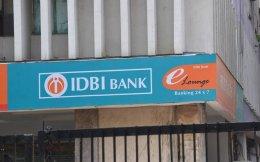Some private equity firms that are keen to put their swelling cash piles to work are paying for expensive acquisitions of fast-growing companies mostly out of their own pockets and trimming back their reliance on debt.
U.S. human resources applications provider Ultimate Software Group Inc, U.S. mortgage software vendor Ellie Mae Inc and German online listings company Scout24 AG are among the companies that private equity firms agreed to buy this month using mostly cash from their own investment funds, known as equity, and relatively little debt, people familiar with the transactions said.
The deals show how private equity firms are expanding beyond the traditional leveraged buyout (LBO) model, which has driven most of their deals for the past 40 years, as they look to deploy the record $1.2 trillion they have raised from their investors.
In a typical LBO, private equity firms juice up returns by loading up their acquisitions with debt, which is often provided by banks. But in sectors like technology, company valuations are becoming so lofty that banks will no longer finance the majority of some deals.
Without such financial engineering, the buyout firms are relying on the acquired companies’ projected high rates of growth to drive healthy returns.
“You can finance an acquisition with a lot of equity, but you will only make a big profit if your company posts strong growth and its valuation gets a boost,” said Oliver Gottschalg, founder and head of research at private equity analytics firm PERACS and a professor of strategy and business policy of HEC Paris.
Private equity firms Hellman & Friedman LLC and Blackstone Group LP are paying for their $11 billion acquisition of Ultimate Software with a 70 percent equity contribution. The buyout firms also paid for their 5.7 billion euros ($6.4 billion) purchase of Scout24 with mostly equity, sources said.
Private equity firm Thoma Bravo LLC has agreed to acquire Ellie Mae for $3.7 billion with a roughly 60 percent equity contribution.
By comparison, the average equity contribution for North American private equity deals did not exceed 50 percent in 2017, according to the most recent analysis on the subject published by investment management firm Hamilton Lane Inc. For Western Europe, it was 51 percent, according to the analysis.
As a result, Wall Street bankers have been referring to the Ultimate Software, Ellie Mae and Scout 24 deals as equity buyouts, to distinguish them from the traditional leveraged buyouts.
Equity buyouts still account for only a small fraction of private equity dealmaking. And such deals already do pop up sporadically, but at a smaller scale, including in the energy industry, where private equity firms write checks to back oil and gas executives building exploration and production companies.
What distinguishes this month’s deals is that they are larger than most private equity deals that have relied on equity funding.
Given that private equity deals usually take a few years to show returns, some major investors in buyout funds, also known as limited partners, say they are willing to be patient to see how the new strategy plays out.
“The folks who are paying those valuation multiples and writing these larger equity checks are well established and have a following of limited partners that trust them to do the right thing and still get good returns,” said Robert Hetu, head of U.S. private debt at Canadian public pension fund Caisse de depot et placement du Quebec, one of the world’s largest investors in private equity funds.
Achieving returns
The technology sector is emerging as a locus of expensive private equity deals.
The strong growth prospects of these companies make them coveted but expensive acquisition targets. For example, Ultimate Software clinched a sale price equivalent to around 36 times its 12-month earnings before interest, taxes, depreciation and amortization (EBITDA), more than double the software sector’s average.
Ultimate Software’s revenue has grown more than 55 percent in the past two years, according to its latest annual report. Blackstone and Hellman & Friedman expect that the company’s rapid growth rate will allow them to hit an industry-standard performance target of a 15 to 20 percent internal rate of return, a person familiar with the strategy said.
Representatives for Hellman & Friedman did not respond to requests for comment. Blackstone and Thoma Bravo declined to comment.
Software companies such as Ultimate Software also hold the promise of a lucrative sale to a technology company, said Steven Koenig, an equity analyst at Wedbush Securities. Any number of large players in the enterprise cloud industry, from IBM Corp, to Oracle Corp, to Microsoft Corp, could be good fits for Ultimate Software down the line, Koenig said.
In the near term, one way private equity buyers could amp up returns would be to add debt to fund a dividend when the acquired company manages to boost its cash flow. This could require finding banks that are comfortable financing higher-than-average debt loads.
In the case of Ultimate Software, Credit Suisse Group AG and Nomura Holdings Inc stepped up to provide the equivalent of 11 times its EBITDA, something that many of their investment banking rivals deemed too risky, people familiar with the matter said.
Leveraged buyouts in the technology sector averaged 7.5 times EBITDA in 2018, according to financial data provider Refinitiv.
“Ultimately, it is the private equity firm’s own investors who will be the arbiters of whether the increased valuation multiples are a good or bad thing for the industry,” said Scott Phillips, chairman of financial sponsor coverage at Societe Generale Group.






